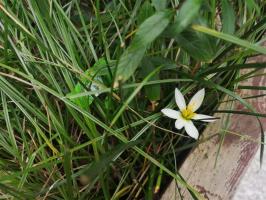Why Aren't Oak Trees Planted More
Oak trees are majestic, long-living and symbolize strength, durability and wisdom. They have been an important component of our cultural and natural heritage for centuries. Nevertheless, oak trees are not commonly planted across the globe, despite the numerous benefits they can offer to humans, animals and the environment.
Challenging Growing Conditions
One of the main reasons for the limited cultivation of oak trees is their demanding growing conditions. Oaks require specific soil types, climates and sunlight exposure. Although there are over 600 oak species scattered throughout the world, not all of them can thrive in particular regions. Furthermore, many oak species exhibit slow growth rates, taking several decades to reach full maturity. In contrast, fast-growing trees, such as pines, eucalyptus, and tropical hardwoods, have become the preferred choice for commercial forestry and landscaping.
Pests and Diseases
Oak trees are also prone to pests and diseases, which can damage or even kill them. Oaks are susceptible to a broad range of insects, such as gall wasps, oak borers, and oak moths, which can defoliate or weaken the trees. Additionally, oaks can be affected by various diseases, including oak wilt, powdery mildew, and anthracnose, which can further decrease their vitality and longevity. Consequently, some landowners, gardeners, and communities may opt for other tree species that are more disease-resistant or easier to maintain.
Perceived Limitations
The use of oaks may also be hindered by perceived limitations. Some people may view oaks as too big, too heavy or too slow to grow. Oaks can grow to immense sizes, which can pose potential hazards if the trees are located close to structures or power lines. Moreover, the sheer size of mature oaks may require extensive pruning or removal, which can be costly and difficult to manage. Additionally, some people may underestimate the unique beauty and beneficial qualities of oak trees, preferring more exotic or flashy species.
Environmental Benefits of Oak Trees
Despite their challenges, oak trees offer numerous environmental benefits that make them valuable assets for sustainable landscapes and ecosystems. Oaks are some of the best trees to sequester carbon, storing substantial amounts of greenhouse gases that contribute to climate change. Moreover, oak trees support a diversity of animal species, providing food, shelter, and habitats for birds, mammals, insects, and fungi. Oaks also protect watersheds, reducing soil erosion, promoting groundwater recharge, and improving water quality. Furthermore, oaks have a deep cultural significance, representing a connection between past, present and future generations.
The Importance of Planting More Oak Trees
Given their ecological, economic, and cultural value, planting more oak trees can generate significant benefits. Increasing the diversity of tree species in urban and rural areas, parks and forests can enhance biodiversity, reduce environmental stress, and boost community resilience. Planting more oak trees can also reduce carbon emissions, offset the negative impacts of deforestation, and contribute to mitigating climate change. Moreover, promoting the education and appreciation of oak trees can foster a deeper understanding of our natural heritage, and strengthen our commitment to environmental stewardship for future generations.
Conclusion
In conclusion, oak trees may not be planted and cultivated as widely as they deserve. Despite their challenges, oaks offer numerous ecological, economic, and cultural benefits that make them positive additions to our landscapes and forests. Planting more oak trees, nurturing their growth and health, and appreciating their unique qualities can be a valuable investment in the future of our planet and society.

 how many times do yo...
how many times do yo... how many planted tre...
how many planted tre... how many pine trees ...
how many pine trees ... how many pecan trees...
how many pecan trees... how many plants comp...
how many plants comp... how many plants can ...
how many plants can ... how many plants and ...
how many plants and ... how many pepper plan...
how many pepper plan...































